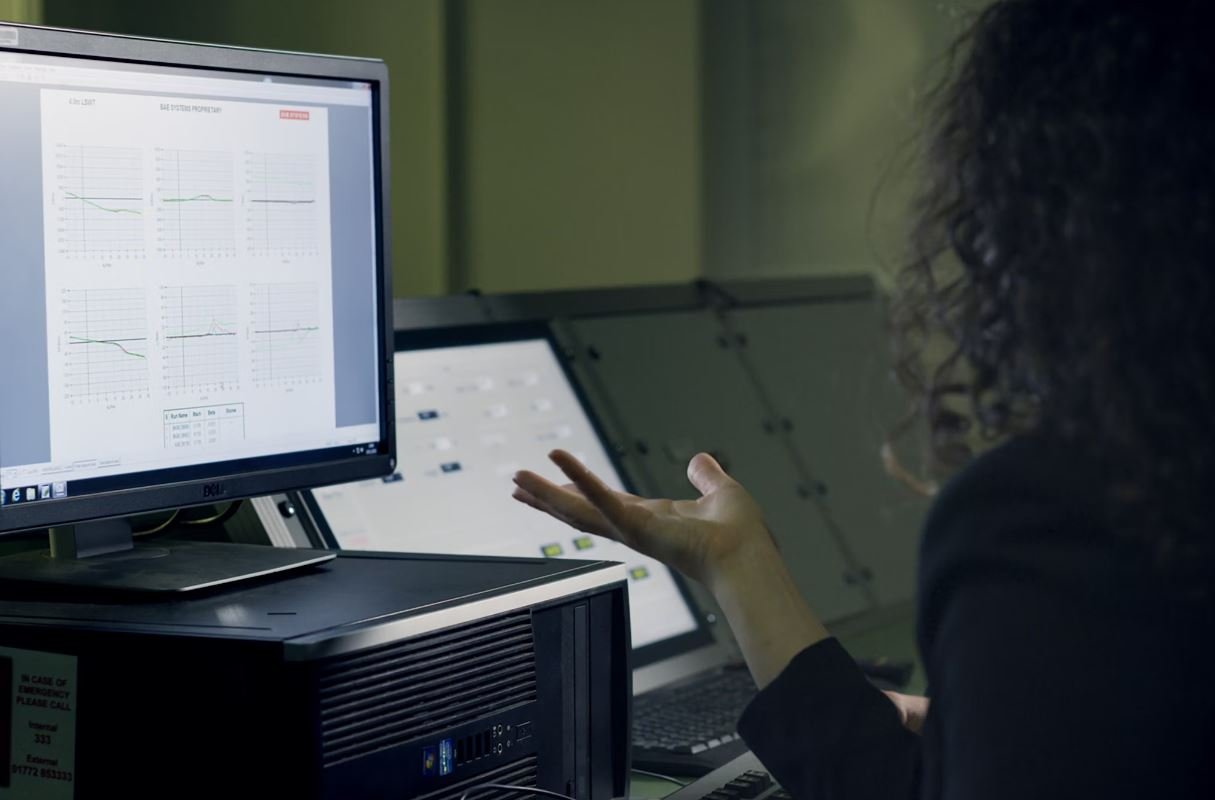What Artificial Intelligence (AI) Is
Artificial Intelligence (AI) is a branch of computer science that focuses on creating intelligent machines capable of performing tasks that typically require human intelligence. AI involves the development of algorithms and models that enable computers to learn from data, recognize patterns, and make decisions or take actions based on that information.
Key Takeaways:
- Artificial Intelligence (AI) is a branch of computer science that creates intelligent machines.
- AI algorithms enable computers to learn, recognize patterns, and make decisions based on data.
- AI is used in various industries, including healthcare, finance, and transportation.
- Machine learning and deep learning are subfields of AI that are driving advancements in the field.
AI technologies are rapidly advancing and impacting various industries, leading to significant transformations in how tasks are performed and problems are solved. Machine learning and deep learning, subfields of AI, have made remarkable progress in recent years, driving advancements in areas such as image recognition, natural language processing, and predictive analytics.
One interesting aspect of AI is its ability to mimic human behavior and perform tasks that typically require human intelligence. For example, AI-powered chatbots can engage in conversations with users, understanding natural language and providing relevant responses. This has been particularly useful in customer service and support.
AI’s impact is resonating across multiple industries. In healthcare, AI is being utilized for medical imaging analysis, drug discovery, and personalized medicine. It has the potential to facilitate early disease diagnosis and improve treatment outcomes. The financial industry leverages AI for fraud detection, algorithmic trading, and risk assessment, enabling more efficient operations and better decision-making. In transportation, AI is driving advancements in autonomous vehicles, optimizing logistics, and improving traffic management.
Machine Learning and Deep Learning
Machine learning is a subset of AI that focuses on enabling computers to improve their performance on a specific task through learning from data. It involves the development of algorithms that can automatically learn and make predictions or decisions without being explicitly programmed. Machine learning techniques include supervised learning, unsupervised learning, and reinforcement learning.
Deep learning, on the other hand, is a subfield of machine learning that utilizes artificial neural networks to model and understand complex patterns and relationships in data. Deep learning algorithms are inspired by the structure and function of the human brain, consisting of multiple layers of interconnected nodes (also known as neurons). This enables deep neural networks to process and analyze large volumes of data, leading to high accuracy in tasks such as image and speech recognition.
The Impact of AI
AI has the potential to revolutionize various aspects of society, from healthcare to transportation. While there are significant opportunities, there are also challenges and considerations that need to be addressed. Ethical concerns, privacy issues, and the potential displacement of jobs are among the challenges that arise with the widespread adoption of AI technologies.
It is clear that AI is transforming industries and reshaping the future of work. As AI continues to evolve, enabling machines to reason, understand, and learn like humans, it becomes essential to ensure that its integration is guided by ethical principles and careful decision-making.
AI Usage in Different Sectors
| Sector | AI Applications |
|---|---|
| Healthcare |
|
| Finance |
|
| Transportation |
|
Table 1: AI Applications across Different Sectors
A growing number of companies are integrating AI into their operations to gain a competitive edge and improve efficiencies. Notable examples include Amazon’s voice-controlled assistant, Alexa, and Google’s language translation service. These advancements demonstrate the potential of AI to enhance everyday experiences and streamline tasks.
| AI Advancements | Examples |
|---|---|
| Speech recognition | Virtual assistants like Alexa, Siri, and Google Assistant |
| Natural language processing | Chatbots for customer support |
| Image recognition | Self-driving cars, facial recognition systems |
Table 2: Examples of AI Advancements
As AI technologies continue to advance, their potential impact on society cannot be understated. From improving healthcare outcomes to optimizing business operations, AI has the power to transform multiple industries. By harnessing the capabilities of AI and addressing its challenges, we can pave the way for a future where intelligent machines work alongside humans, augmenting our abilities and driving innovation.
**AI is not just a buzzword, but a fundamental technology shaping the future of various industries.**

Common Misconceptions
Misconception 1: AI is just like human intelligence
One common misconception about AI is that it possesses the same level of intelligence as humans. However, it is essential to understand that AI is designed to simulate human intelligence and perform specific tasks using algorithms and machine learning.
- AI cannot understand emotions or experience consciousness like humans
- AI lacks creativity and intuition that humans possess
- AI’s decision-making is solely based on data and algorithms, not personal beliefs or values
Misconception 2: AI will replace human jobs entirely
Another misconception people have is that AI will replace humans in every job, leading to high unemployment rates. While AI has the potential to automate certain tasks and roles, it is unlikely to completely replace human workers.
- AI can augment and enhance human capabilities, leading to more efficient and productive work
- Certain industries may experience job displacement, but new jobs will emerge in AI-related fields
- The need for human creativity, critical thinking, and emotional intelligence cannot be fully replicated by AI
Misconception 3: AI is infallible and unbiased
Many people think that AI is completely objective and unbiased in its decision-making. However, AI systems are created and trained by human programmers, which means they can inherit biases and inaccuracies present in the data used for training.
- AI systems can perpetuate or amplify existing societal biases
- The quality and diversity of the data used to train AI algorithms greatly impact their fairness and accuracy
- Constant monitoring and evaluation of AI systems are necessary to prevent unintended consequences and bias
Misconception 4: AI is a futuristic technology with no real-world applications
Some people believe that AI is a purely futuristic concept with no practical applications in the present. However, AI is already integrated into various industries and has real-world uses.
- AI is used in healthcare for medical imaging analysis and diagnostics
- AI plays a crucial role in recommendation systems, personalized advertising, and virtual assistants
- Autonomous vehicles, drones, and robots utilize AI for navigation and decision-making
Misconception 5: AI will become self-aware and take over the world
Science fiction often portrays AI as a malevolent force that becomes self-aware and takes over the world. However, this common misconception is far from the reality of AI.
- Current AI systems have no self-awareness or consciousness
- AI operates within predefined constraints and can only perform tasks it has learned or programmed for
- The development of ethical AI frameworks and regulations ensures responsible and beneficial use of AI technology

What Artificial Intelligence (AI) Is
Artificial Intelligence (AI) refers to the simulation of human intelligence in machines that are programmed to think and learn like humans. AI has emerged as a significant field of study, with numerous applications across various industries. The following tables provide an in-depth analysis and understanding of different aspects of AI.
The History of Artificial Intelligence
Explore the timeline of significant milestones and breakthroughs in the development of artificial intelligence.
Timeline of AI
| Year | Event/Milestone |
|---|---|
| 1950 | Alan Turing introduces the Turing Test, a benchmark for AI. |
| 1956 | The Dartmouth Conference marks the birth of AI as a field of study. |
| 1997 | Deep Blue defeats world chess champion Garry Kasparov. |
| 2011 | IBM’s Watson wins Jeopardy! against human opponents. |
| 2016 | AlphaGo, an AI program developed by Google, defeats world champion Go player Lee Sedol. |
AI Applications in Daily Life
Discover the various ways in which artificial intelligence is integrated into our everyday lives.
AI in Daily Life
| Domain | Examples |
|---|---|
| Smart Homes | Voice-activated assistants, like Amazon Echo, control home devices. |
| Virtual Assistants | AI-powered chatbots provide customer support and answer queries. |
| Navigation | Navigation apps utilize AI to suggest routes and estimate arrival times. |
| Healthcare | AI assists in diagnosing diseases and analyzing medical images. |
| Entertainment | Streaming services use AI to recommend personalized content. |
Benefits of Artificial Intelligence
Explore the positive impacts and advantages of artificial intelligence in various fields.
Advantages of AI
| Field | Benefits |
|---|---|
| Transportation | Improved road safety through autonomous vehicles. |
| Finance | Faster fraud detection and prevention. |
| Manufacturing | Increase in productivity and quality control in production processes. |
| Education | Personalized learning experiences tailored to individual students. |
| Environmental Conservation | AI helps in monitoring and managing ecological systems. |
Ethical Considerations in AI Development
Delve into the ethical dilemmas and concerns surrounding the development and implementation of AI technologies.
Ethics in AI
| Issue | Concerns |
|---|---|
| Job Displacement | Potential loss of jobs as automation replaces human roles. |
| Data Privacy | Concerns over the misuse and mishandling of personal data. |
| Biases in AI | Unfair or discriminatory outcomes due to biased training data. |
| Human Control | Ensuring AI systems remain under human supervision and control. |
| Legal Implications | Defining the legal frameworks and responsibilities around AI use. |
The Future of Artificial Intelligence
Take a glimpse into what the future holds for the advancement and potential applications of artificial intelligence.
Future Applications
| Industry | Potential Applications |
|---|---|
| Transportation | Self-driving cars and optimized traffic management systems. |
| Healthcare | AI-assisted surgeries and personalized medicine. |
| Customer Service | Advanced chatbots capable of human-like conversations. |
| Space Exploration | AI-driven autonomous spacecraft for deep space missions. |
| Robotics | Robots with enhanced capabilities for various industries and tasks. |
AI’s Impact on Job Market
Understand the potential effects of AI on the job market, highlighting both challenges and new opportunities.
Job Market Impact
| Aspect | Effects |
|---|---|
| Job Losses | Automation may eliminate some traditional jobs. |
| New Jobs | AI creates opportunities for the development and maintenance of AI systems. |
| Skills in Demand | Skills related to AI programming and development become highly sought after. |
| Education and Retraining | Workers need to adapt and acquire new skills to remain competitive. |
| Innovation | AI can drive innovation, leading to the creation of new industries and jobs. |
AI in Popular Culture
Explore the influence of artificial intelligence on popular culture through movies, music, and literature.
Popular Culture References
| Art Form | Notable Examples |
|---|---|
| Movies/TV | The Matrix, Ex Machina, Westworld |
| Music | Kraftwerk’s “Autobahn,” Daft Punk’s “Robot Rock” |
| Literature | Isaac Asimov’s Robot series, Philip K. Dick’s Do Androids Dream of Electric Sheep? |
| Video Games | Portal, Detroit: Become Human, Deus Ex |
| Art | AI-generated artworks, like The Next Rembrandt |
AI’s Contribution to Scientific Advancements
Discover how artificial intelligence plays a vital role in scientific research, exploration, and development.
Scientific Contributions
| Field | AI Applications |
|---|---|
| Astronomy | AI assists in analyzing vast amounts of astronomical data for discoveries. |
| Genetics | Machine learning aids in DNA sequencing and genomics research. |
| Drug Discovery | AI expedites the identification of potential therapeutic compounds. |
| Climate Modeling | AI helps in predicting climate patterns and assessing environmental impacts. |
| Physics | AI improves data interpretation and simulation capabilities. |
Artificial Intelligence (AI) is an ever-evolving field with immense potential to revolutionize various aspects of our lives. From assisting in healthcare and transportation to shaping the future of space exploration, AI’s impact is far-reaching. However, as AI becomes more prevalent, ethical concerns and job market implications demand careful consideration. As we embrace the possibilities offered by AI, it is necessary to ensure responsible development and usage. By striking a balance between innovation and ethics, we can harness the power of artificial intelligence for the betterment of society.
What Artificial Intelligence (AI) Is
FAQ’s
What is artificial intelligence?
Artificial Intelligence (AI) refers to the simulation of human intelligence in machines that are programmed to think and learn like humans.
How does artificial intelligence work?
Artificial intelligence works by using algorithms and machine learning techniques to process and analyze complex data, recognize patterns, and make informed decisions or predictions without explicit human intervention.
What are the different types of artificial intelligence?
The main types of artificial intelligence include narrow AI, which is designed for a specific task, and general AI, which possesses human-like intelligence and can handle various tasks autonomously. There are also subfields of AI such as machine learning, natural language processing, and computer vision.
What are some real-world applications of artificial intelligence?
Artificial intelligence is being used in various industries and applications such as self-driving cars, virtual assistants, recommendation systems, fraud detection, healthcare, robotics, and many more.
What are the benefits of artificial intelligence?
The benefits of artificial intelligence include increased efficiency and productivity, improved decision-making, enhanced accuracy, automation of repetitive tasks, new opportunities for innovation, and the potential for solving complex problems on a large scale.
Are there any risks associated with artificial intelligence?
While there are benefits, there are also risks associated with artificial intelligence. These risks include potential job displacement, ethical concerns regarding privacy and security, biases in AI algorithms, and the possibility of AI systems going beyond human control.
How is AI different from automation?
AI and automation are related but distinct concepts. While automation refers to the use of technology to perform tasks automatically, AI goes a step further by enabling machines to learn from data, adapt, and make decisions based on knowledge. AI can add intelligence to automated systems.
What skills are required to work in artificial intelligence?
Working in artificial intelligence requires a combination of skills such as programming, mathematics, statistics, data analysis, problem-solving, and domain expertise in the specific application area. Strong critical thinking and creativity are also valuable traits.
Is artificial intelligence a threat to human jobs?
Artificial intelligence has the potential to automate certain job tasks, which may lead to job displacement in some industries. However, it also creates new job opportunities and has the potential to enhance human capabilities in many fields.
Can artificial intelligence replace human intelligence?
While AI can perform specific tasks better than humans in some cases, it is unlikely to fully replace human intelligence. Human intelligence encompasses a wide range of cognitive abilities, creativity, emotional intelligence, and social understanding, which are currently challenging for AI to replicate.




